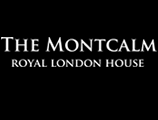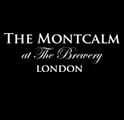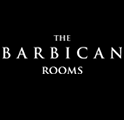Heading to London or somewhere further afield in England soon? Then it’s a good idea to get clued up on the culture there and the wider UK in general, especially if you’ve never been here before. It’s an extremely diverse and welcoming place, steeped in history and tradition both its own and customs it’s adopted.
As well as some quick facts about England, here are 10 things you need to know about British life and culture before visiting England.
QUICK FACTS ABOUT ENGLAND - FAQS:
- What are the traditions in England? We’ll cover most of these below, but here’s another handy guide of the most popular.
- Why is England called England, and what was England called before? The name ‘England’ is derived from the Old English name England, which means “land of the Angles”. The Angles were one of the Germanic tribes that settled in Great Britain during the Early Middle Ages.
Language and accent
English is the main language spoken by approximately 98% of the population in the UK, and also in lots of countries across the globe. It has with numerous dialects which can vary greatly as you move throughout the county, which can confuse tourists and natives alike. There are some regional language speakers, including Scottish Gaelic, Irish Gaelic and Welsh. As a multi-national country, the UK has a plethora of other languages spoken across the country, from Polish to Hindi. Wherever you’re staying, you’re sure to find someone to communicate with, particularly in major hotels like Barbican Hotels London, for example.
Religion and beliefs
The official state-sanctioned religion in the UK is the Church of England – which is of the Christian Protestant faith. However, there has been a huge decline in the role of the church in Britain since the middle of the last century – it’s estimated that less than half of the population now attend church weekly. Thirty percent of the UK population affiliates to the official Church of England while ten percent identify with the Roman Catholic religion.
Whilst Christianity is the dominant religion in the UK, minority religions include Islam, Hinduism, Sikhism, Judaism and Buddhism, with places of worship available to the above religions, and more.
Social etiquette
The British pride themselves on their social etiquette – politeness is seen as exceptionally important here. From something as proper as a tea time or even as casual as fish and chips at the local pub, politeness, manners, and general courtesy are key. For example, standing in line, what the British call a ‘queue’ is taken very seriously, so be mindful when doing so, and wait your turn.
British cuisine
Even if British food hasn’t got the glowing reputation it deserves, there are a lot of great dishes to enjoy in Barbican restaurants in London and beyond. The English breakfast and fish and chips are the most iconic dishes in the UK.
Traditional British foods typically centre around the idea of ‘meat and two veg’, though diets such as vegetarianism and veganism are growing in popularity throughout England in particular. Plus, as it is a multicultural country, you can now enjoy food from all parts of the world in the UK.
The monarchy
Although they have no real power in terms of decision making and laws, the British royal family are still very important to the British people, particularly the queen and the two princes’, Harry and William. In many ways, they represent everything that is traditionally British. However, their different roles and positions can appear complicated and confusing to those unfamiliar with a typical, historic monarchy. Experience your own regal slice of luxury in the Montcalm Hotel Barbican.
Art and literature
The UK has an opulent history of art and literature. Looking at the literature, in particular, Britain has produced famous writers including William Shakespeare, Geoffrey Chaucer, John Milton, J.R.R. Tolkien and J.K. Rowling. The works of William Shakespeare, most specifically Romeo and Juliet, have been read by millions of people across the planet, and as of 2017, it had been translated into over 100 languages. J.K. Rowling is one of UK’s most important writers of the 21st century, as her Harry Potter books rank as the best-selling book series of all time.
Theatre and music
Likewise, music and theatre in the UK have a long and rich history. British artists and musicians have impacted the European and global history of music since medieval times, where British composers gave a major contribution to continental music movements. Some of the most known British composers in classical music include Henry Purcell, Hubert Parry, Edward Elgar, Ralph Vaughan Williams and Benjamin Britten, and there are world renowned theatre companies across the capital and beyond. What not combine a show with a stay in a luxury London hotel suite?
Sports and leisure
Unsurprisingly, sport is a huge part of life in the UK, with some of the world’s most loved sports invented here. If you’re interested, it is so easy to get involved, whether through watching and supporting a sport or giving it a go yourself. Every week thousands of people across Britain take part in a wide variety of sports, playing at all levels or supporting their local teams at local matches.
Weather
The weather is one of the things Britain is most famous for, and perhaps not for such a positive reason. Other nationalities see the British as obsessed by our climate, as we’re always talking about it and analysing it, whatever the weather (and complaining about it). The weather is notorious for being unpredictable and ‘rainy’, though it’s worth noting that France experiences more rain per mm each year than the UK.
Festivals and celebrations
The English love a reason to celebrate. Major celebrations in the UK calendar include Christmas Day (25th December), Boxing Day (26th December), New Year’s Day, Good Friday, Easter Sunday, the Queen’s Birthday on the second Saturday in June.
Additional celebrations are known as Bank Holidays, where most traditional businesses close for the day, and these take place in either May or August every year.


























